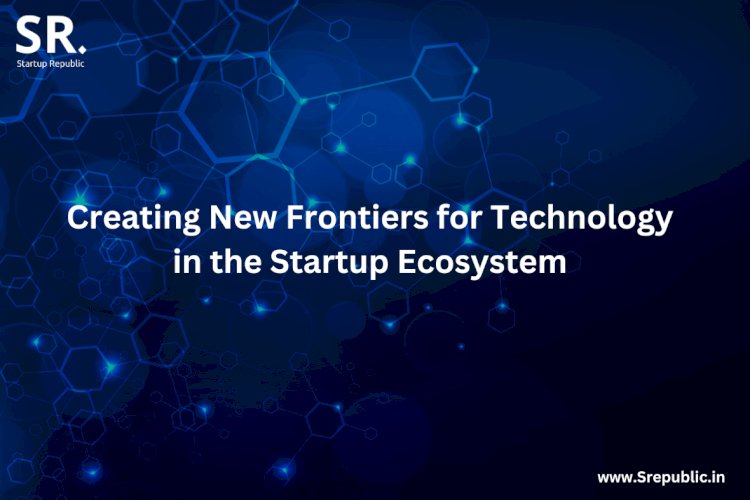Creating New Frontiers for Technology in the Startup Ecosystem

Introduction:
In today's fast-paced world, the startup ecosystem plays a crucial role in driving innovation and pushing the boundaries of technology. Startups are nimble, agile, and have the ability to disrupt traditional industries with groundbreaking ideas. They create new frontiers for technology, shaping our future and transforming the way we live, work, and interact. In this blog, we will explore the power of startups in creating new frontiers for technology and the key factors that contribute to their success.
- Embracing Disruption:
Startups thrive on disruption. They challenge the status quo and introduce new ideas, products, and services that redefine industries. By leveraging emerging technologies such as artificial intelligence, blockchain, Internet of Things (IoT), and more, startups are reshaping sectors like finance, healthcare, transportation, and education. These disruptive innovations not only offer novel solutions but also inspire established companies to adapt and evolve.
- Cultivating a Culture of Innovation:
The startup ecosystem fosters a culture of innovation that encourages experimentation, risk-taking, and learning from failure. Startups embrace a mindset of continuous improvement, pushing the boundaries of what is possible. They encourage interdisciplinary collaboration and diversity, bringing together talented individuals from various backgrounds to solve complex problems. This collaborative environment enables startups to harness the power of collective creativity and drive technological advancements.
- Leveraging Technology Enablers:
Startups leverage technology enablers to accelerate their growth and create new frontiers. Cloud computing, for example, provides cost-effective access to scalable computing resources, enabling startups to focus on their core innovations rather than infrastructure management. Moreover, open-source software and platforms offer startups a foundation to build upon, reducing development costs and increasing speed to market. By leveraging these technology enablers, startups can rapidly prototype, iterate, and refine their ideas.
- Nurturing Entrepreneurial Ecosystems:
Successful startup ecosystems require nurturing environments that support entrepreneurship. Governments, academic institutions, investors, and industry leaders play a vital role in fostering these ecosystems. Supportive policies, such as tax incentives and streamlined regulations, encourage innovation and attract talent. Access to capital through venture capital firms, angel investors, and crowdfunding platforms fuels startup growth. Collaboration between academia and startups facilitates knowledge exchange and research-driven innovation. These elements collectively create an ecosystem that fuels the creation of new frontiers for technology.
- Addressing Societal Challenges:
Startups are uniquely positioned to address pressing societal challenges using technology. Whether it's tackling climate change, improving access to healthcare, enhancing education, or advancing sustainable agriculture, startups bring fresh perspectives and innovative solutions. By leveraging technology, startups can scale their impact and drive positive change in society. They have the agility to adapt quickly, experiment with novel approaches, and collaborate with stakeholders to create a better future.
Conclusion:
The startup ecosystem is a catalyst for creating new frontiers for technology. Startups disrupt industries, foster innovation, and address societal challenges with their novel ideas and technological advancements. By embracing disruption, cultivating a culture of innovation, leveraging technology enablers, and nurturing entrepreneurial ecosystems, startups pave the way for a future defined by progress and transformation. As we continue to witness the power of startups in shaping our world, it is essential to support and celebrate their efforts, for they are the driving force behind the creation of new frontiers in technology.

 Lalita Singh
Lalita Singh 






















